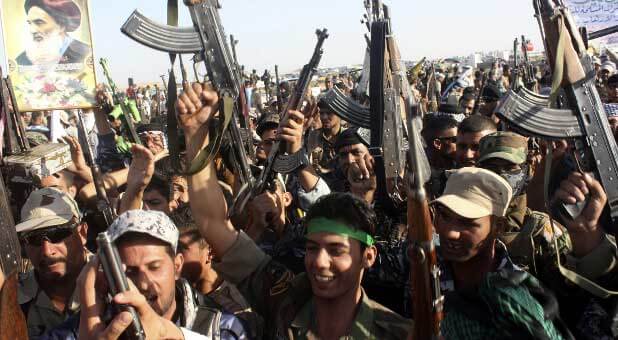While Israel has been absorbed in the Palestinian terrorist kidnapping of three Israeli teenagers, including one who is also an American citizen, the attention in the United States has been focused on the crisis in Iraq.
A public debate has been raging in the U.S. over the best way of responding to the ISIS offensive, in which the well-armed and financed Sunni Muslim militia is storming western Iraq on its way to Baghdad. This is a debate that seems to cross party lines, with leading Republicans such as former Vice President Dick Cheney advocating strong and decisive American military action on behalf of the embattled predominantly Shiite government of Prime Minister Nouri al-Maliki, and others such as Senator Rand Paul calling for cautious analysis before throwing American troops and/or weapons into another failed overseas adventure.
Meanwhile, President Barack Obama seems to be indecisive, but leaning towards a more robust American response to stop the ISIS surge, and therefore, has sent Secretary of State John Kerry to Baghdad for emergency consultations to attempt to stabilize the Maliki government and to increase cooperation between the dominant Shiite faction with the increasingly marginalized and alienated Sunni and Kurdish components of his current government.
The problem with all of these approaches, as well as the problem with the American involvement in Iraq in general, is that they ignore the concept of self-interest, which, at least in the Middle East, is everything. Rather than reflexively getting involved and embroiled in an internal Islamic, ethnic rivalry, or, conversely, avoiding all involvement, it behooves a wise leader to examine who is a potential friend and who is an enemy.
Everyone seems to agree that the al-Qaeda linked ISIS is no friend of the West, but it has been reported that they are receiving substantial financial support from (supposed American allies) Saudi Arabia and Qatar, who as Sunnis, are siding with their brethren. Maliki, who is a Shiite Muslim, has minimally cooperated with the United States just to maintain his position, but the Shiite Muslims in the Middle East, including in Iraq, are primarily aligned with Iran, which is feverishly preparing ballistic missiles that can reach the United States with the nuclear bombs that they hope to soon possess. Yes, the Iranians are sworn to Israel’s destruction, but such long-range missiles aren’t needed to reach Israel.
The only one of the three dominant forces in Iraq that is relatively pro-Western is the Kurds, a fairly cohesive group that is solidly entrenched in Northeastern Iraq in a region that is rich in oil wealth. The Shiites and Sunnis are both jihadist and seek the destruction of Judeo-Christian civilization, so what is the purpose of reengaging and sending troops or any kind of support to either of them? Let the Sunnis and Shiites fight it out—and may they both lose. As they are both enemies of the United States, the West, and Israel, it cannot hurt to have them fighting each other.
It’s certainly not “politically correct” to say so, but the bloody Islamic ethnic standoff in Syria has succeeded in weakening both the Sunni rebels and Assad’s Alawite/Shiite government. In short, two enemies of the West are fighting each other, and that’s good. The interests of the free world dictate letting the civil war continue and quietly encouraging a standoff.
The Syrian model can be learned from. A long-term Shiite-Sunni war in Iraq can only be beneficial to the West’s war on Islamic terrorism. It would be greatly advisable to covertly enable and encourage such a standoff, while providing political and passive military support to the Kurds in their quest for stability, and eventual independence.
They are the only ones in Iraq that can reasonably be expected to protect Western interests in exchange for such assistance, so they should be supported. As for the Shiite-Sunni jihadist battlefields? Disengage.
David Rubin is former mayor of Shiloh, Israel. He is founder and president of Shiloh Israel Children’s Fund and the author of several books, including Peace for Peace and The Islamic Tsunami. He can be found at www.DavidRubinIsrael.com or at www.ShilohIsraelChildren.org.











































